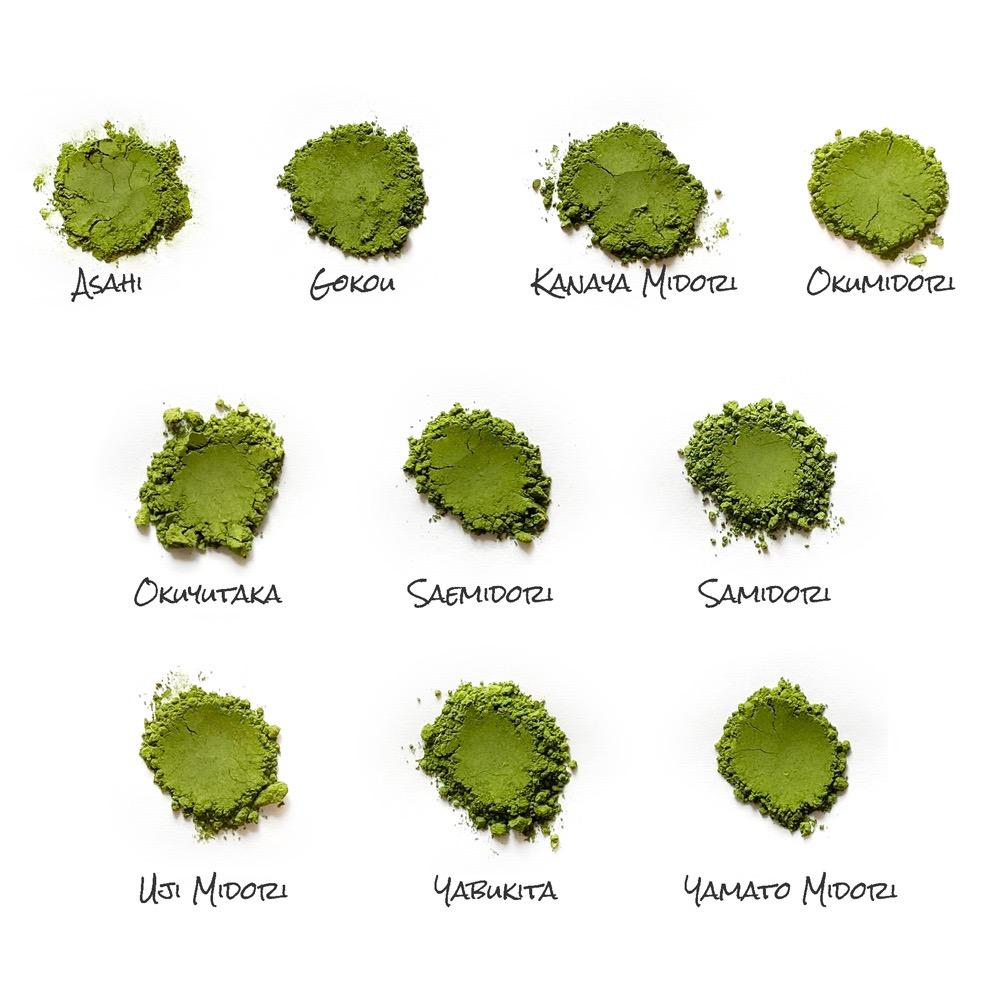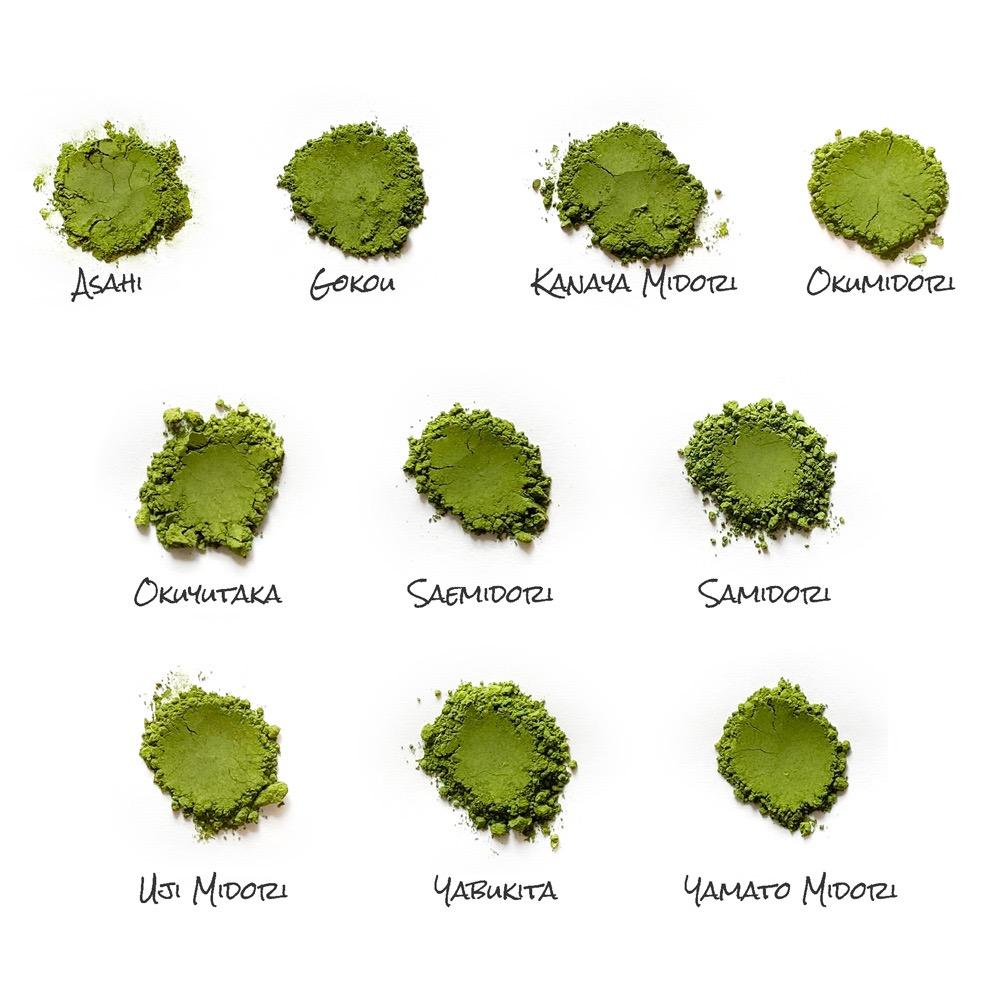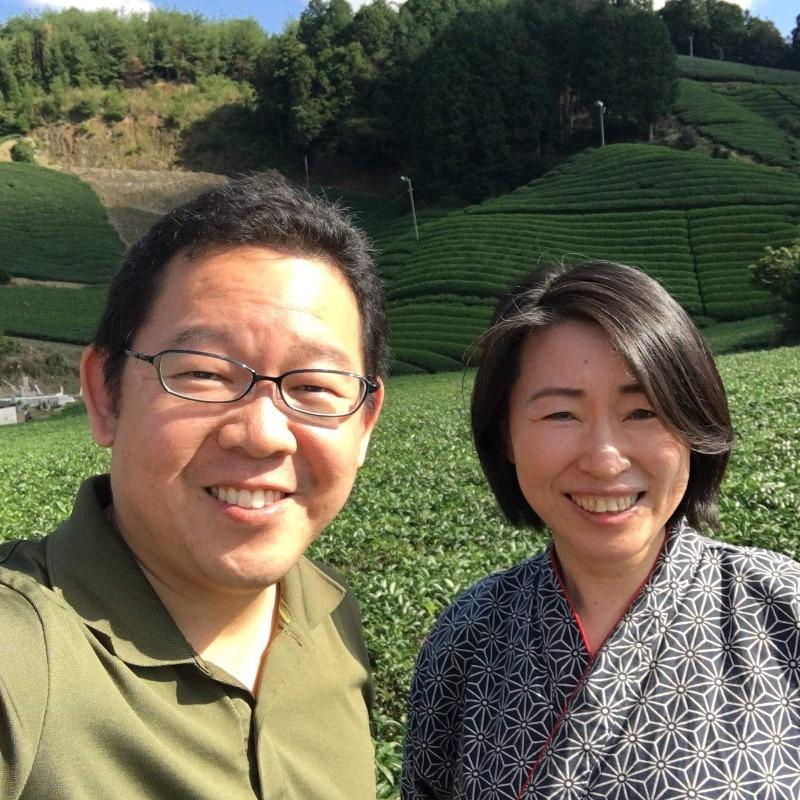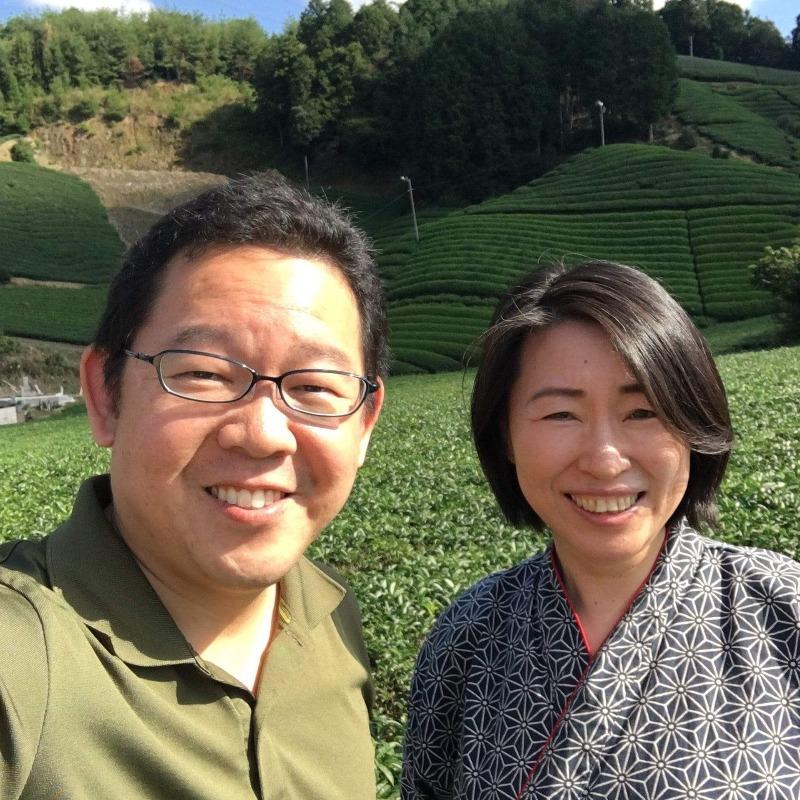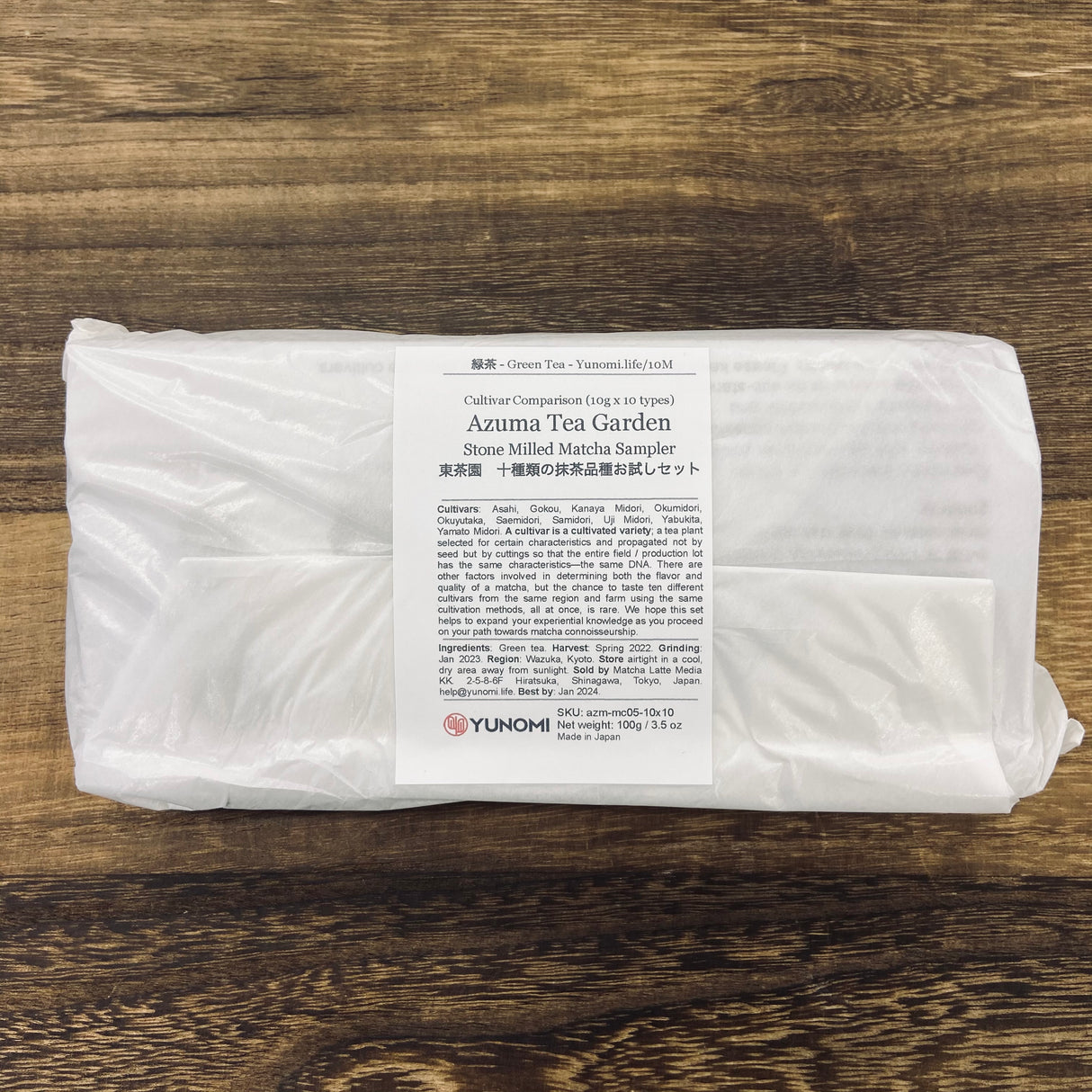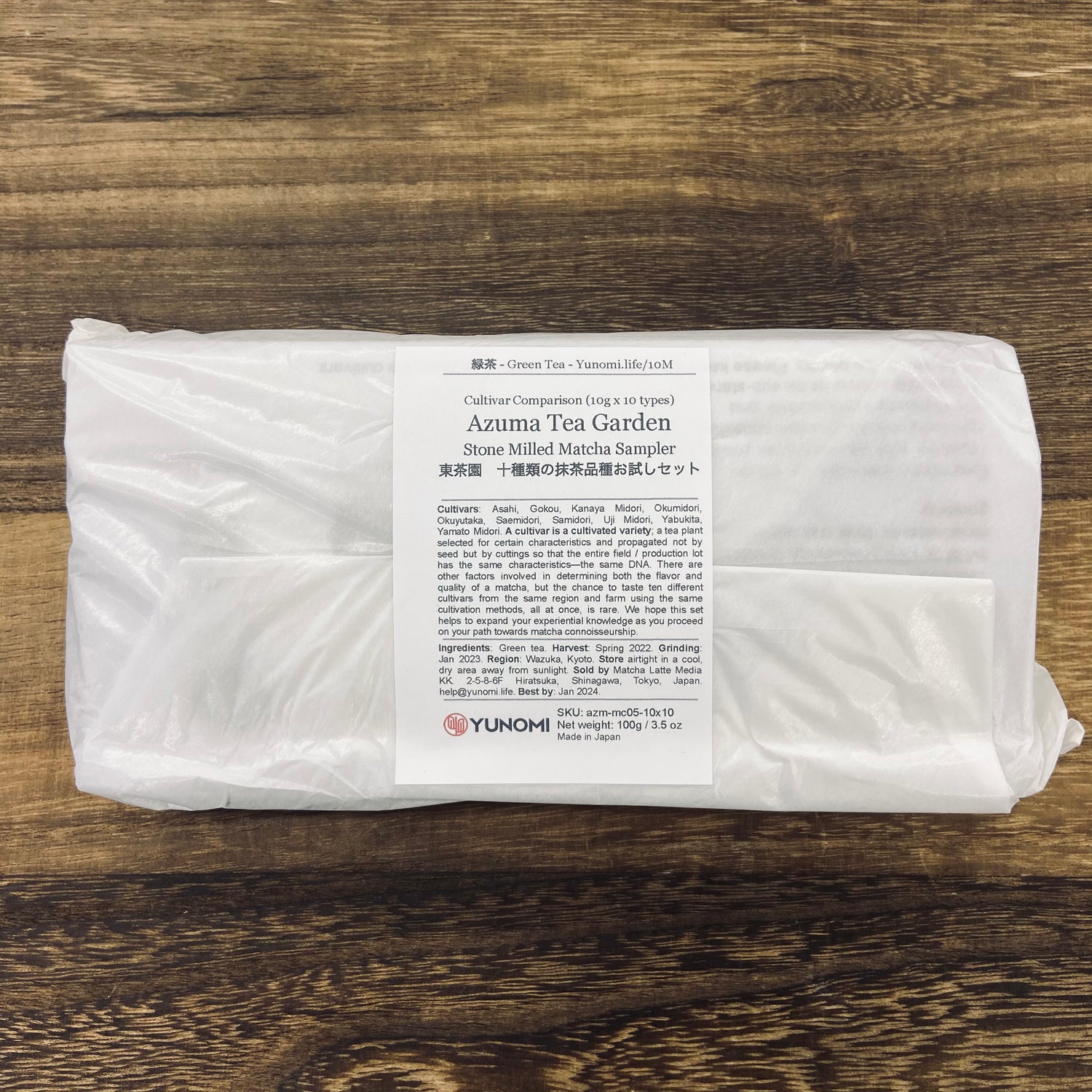#0110.K6 Cultivar Comparison (10g x 10 types): Azuma Tea Garden Stone Milled Matcha Sampler (Last few units until Sept)
#0110.K6 Cultivar Comparison (10g x 10 types): Azuma Tea Garden Stone Milled Matcha Sampler (Last few units until Sept) <-- Out of stock. PREORDER NOW. In general, procurement time is 2-4 weeks (matcha may take 2-6 months). Repacking is possible if a larger size is available (1-2 weeks).
Couldn't load pickup availability
If item is out of stock, add it to your wishlist to be notified by email as soon as item can be purchased.
Shipping Methods & Delivery Guarantee
Shipping Methods & Delivery Guarantee
Shipping fees vary by country, courier, and method. Place items into your inventory and go to the CART page to see the shipping estimate calculator. For some countries, we may need to manually calculate fees after purchase.
YUNOMI.LIFE'S DELIVERY GUARANTEE: We guarantee delivery for all orders shipped by airmail with a tracking number. (Conditions apply. Exceptions when notified.) Occasionally, orders may require additional customs processing for import. We will aid you to the fullest extent of our ability. If your order does not arrive within ONE month from shipment due to no fault of your own, we will replace or refund your order at no extra cost. We reserve the right to refuse shipment if we think delivery to your address may be difficult. This guarantee does not apply if recipient neglects or refuses to pay customs fees & import taxes, neglects to retrieve an order held at a post office or distribution center, or if the order is not deliverable due to a wrong address. Yunomi.life's Delivery Guarantee does not apply to wholesale purchases.
A set of pure matcha green tea powders in ten different cultivars. Variations between teas can occur due to cultivars but also due to weather, terrain, region, a farmer's cultivation techniques including soil development, fertilizing, etc, and as a result of different processing and grinding.
However, by comparing products by the same farmer, we can eliminate at least some of this variation, allowing you to taste the difference in cultivars as accurately as possible. Azuma-san's farm is a fully vertically integrated operation, managing their own fields, initial tencha processing, finishing, and most recently their own stone mill grinding.
Even then, there will always be variation also from year to year for any specific cultivar. Please keep this in mind as you taste and compare cultivars.
The processing of each cultivar is the same according to Azuma-san, and yes, the matcha does change in flavor as time passes from month to month, but since they were all processed and ground at the same time in the same way, the differences in flavor will be mainly the differences in the cultivar.
Also, if you look really carefully at the photos, you might see some non-powder items...those are leaf veins. The samples for photography were made using tencha refined by hand, so are a little more rough. What you'll see in the set when it arrives will have been refined using a photoelectric sorter (the leaf has a darker color than the stems and veins), so the color and texture will be better than what I tasted in the samples.
What is a Cultivar?
A cultivar is a cultivated variety; a tea plant that has been selected for certain characteristics and propagated not by seed but by cuttings so that the entire field / production lot has the same characteristics. Each plant in the field will have the same DNA as others.
Still working on the below descriptions....for those who buy the set, would love to see your own tasting notes in the review!
- ASAHI - A cultivar originally selected from Uji seed grown plants (zairai) on Hirano Jinojo's farm in 1953, the leaves grow thin and wide making it perfect for tencha with a bright green color and a creamy flavor profile. The crop yield is low compared to Yabukita, and the best timing for picking is short, making it a relatively more expensive cultivar. Asahi is perhaps the most highly valued cultiar for tencha and is often used by farmers submitting their tencha leaves to competitions.
- GOKOU - Another tea cultivar registered in 1953 in Kyoto, gokou is also known for its sweet, milky profile due to a high level of umami, and used for both tencha and gyokuro production.
- KANAYA MIDORI - Created from Yabukita and a unnamed cultivar called "S6" and registered in 1970, this cultivar has been said to have a more milky characteristic. Tasting notes: My tasting of this was sweet but also a bit toasty, with a deep green color
- OKUMIDORI - The okumidori cultivar is rich in chlorophyll creating a very deep green color, and is used across all teas from sencha to gyokuro to of course tencha for matcha. Tasting notes: sweet, bright green color.
- OKUYUTAKA - While this cultivar registered in 1983 has a great flavor profile, the young plants tend to be weak, and crop yield low, so has not become as popular among farms as some other cultivars.
- SAEMIDORI - This cultivar has become very popular recently for gyokuro due to its light, bright green color and sweet, umami-rich profile. As a matcha, the color may be a little too light, but the difference is subtle.
- SAMIDORI - The samidori cultivar is a tencha specific cultivar, with a bright color and rich umami flavor perfect for matcha. It is probably the cultivar most commonly used for handpicked tencha since as a late flushing cultivar, the harvest period is longer.
- UJI MIDORI - This cultivar was selected from a single zairai plant (grown from seed) in Uji in 1985. Rarely grown outside of the Kyoto region, it is also a rare plant within Kyoto and mainly used for high grade tencha and gyokuro.
- YABUKITA- Identified in 1908 by Sugiyama Hikosaburo in Shizuoka, and officially registered in 1953, the yabukita cultivar is the most common tea plant cultivar used in approximately 75% of the tea fields in Japan. As such, it is the standard by which many other tea cultivars are measured in both harvest timing as well as flavor profile. The balanced flavor of the leaves makes it popular for sencha, but it provides a weaker umami taste and its green color is duller, so is not usually used for matcha as a result.
- YAMATO MIDORI - First grown in 1924 at what is now the Yamato Tea Research Center, and taken from seed-grown plant from the farm of Fukui Kanjiro, this is the only cultivar that originates from Nara. It was registered officially in 1953, and its name comes from the ancient name for the region, Yamato, which is also synonym for the country of Japan since the first emperors of Japan where based in this area. Yamato Midori (midori means "green") is a late flushing plant generally harvested 10 days after Yabukita making it more resistant to the colder air of early spring. It has a well-balanced flavor profile.
Product info
- Ingredients: Green tea
- Contents: 10g x 10 bags
- Shading technique: Direct shading.
- Harvest: Spring by handheld harvester
- Region: Wazuka, Kyoto
About The Azuma Tea Garden
The Azuma family specializes in growing tencha, the leaves used for creating matcha. In the process of certifying tea fields as organic, they shifting cultivation of their fields to pesticide free practices.
Based in Wazuka, Kyoto, Japan, the family has also recently built their own matcha grinding factory becoming fully vertically integrated as a producer.
-
RegionKyoto - 京都府
Payment & Security
Payment methods
Your payment information is processed securely. We do not store credit card details nor have access to your credit card information.

